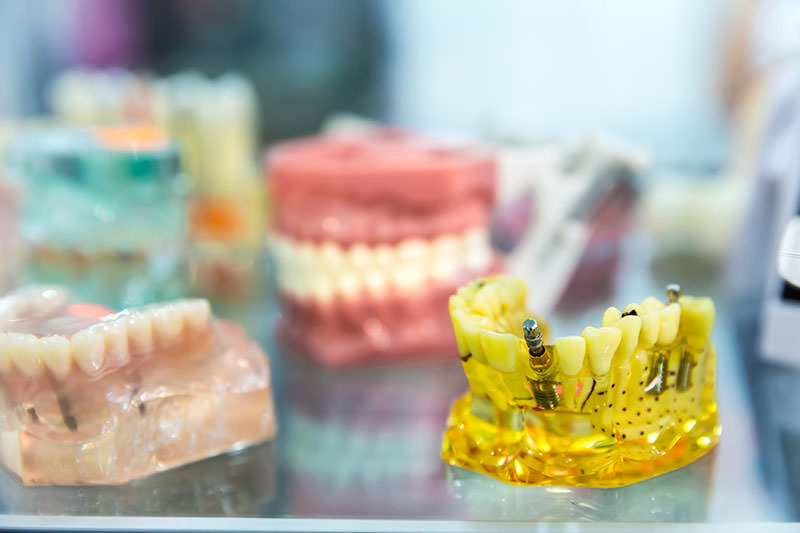
What is the Difference between a Dentist and an Oral Surgeon?
If you’re confused about the difference between a dentist and an oral surgeon, you’re not alone. There are a wide variety of options when it comes to dental providers, and it can be a challenge to figure out which professional is capable of catering to your needs. While dentists and oral surgeons may seem similar, the two have very different levels of education, training, and expertise, each plays its own role with regard to oral health. Here, we discuss an oral surgeon vs. dentist so that you can make an informed decision about your oral health.
What is a Dentist?
A general dentist offers primary and preventative care for your teeth. Both children and adults should see a dentist regularly for teeth cleaning, X-rays, and comprehensive oral screenings. Frequent dental appointments can help you to catch teeth, gum, and throat issues early on so that you can address the problem before it becomes a health hazard.
Most general dentists also offer services beyond the scope of basic care. A dentist can help to address issues such as gum disease and root canals, and many also offer cosmetic fixes. The top procedures performed by dentists include:
- Fillings
- Crowns
- Sealants
- Bridges
- Veneers
- Whitening
What Degree Does a Dentist Have?
For the most part, dentists complete four years of undergraduate school before taking the Dental Admissions Test, or DAT. After that, they attend between three to four years of dental school, where they learn the basics of anatomy, physiology, pharmacology, pathology, and oral health. Students also gain practical training under a licensed dentist, where they learn in-depth on how to diagnose and treat common dental and oral problems.
The Difference Between a DDS Dentist and DMD Dentist
Once a dentist has completed his or her training, they receive a degree listing them as either a Doctor of Dental Medicine (DMD) degree or a Doctor of Dental Surgery (DDS). Both titles are essentially the same, and schooling is the same as well. The main difference is that accredited dental schools choose to award their graduates different degrees.
What is an Oral Surgeon?
Occasionally, a dentist will refer their patient to an Oral Surgeon for specialized treatment. Oral surgeons, also known as Oral & Maxillofacial Surgeons. These healthcare professionals have extensive medical, dental and surgical specialized training on how to recognize and treat issues related to the Face, Oral Cavity, Jaw, and Teeth. They are experts in Extractions and Dental Implant placements to name a few.
Patients visit oral surgeons for more specialized care and complex problems with the teeth, Oral cavity, jaw, and face, some which include:
- Teeth Extractions
- Dental Implant placement
- Removal of oral or jaw tumors or pathologies
- Oral and face Biopsy
- Jaw joint disorders
- Wisdom teeth removal
- General facial pain
- Bone grafting
- Salivary gland disorders
- Facial and Oral Infections
- Facial Trauma and Reconstruction
- Other pathologies of face, jaw and oral cavity
What Degree Does an Oral Surgeon Have?
Oral surgeons start with the same training as general dentists initially. They attend undergraduate school for four years before going to dental school and earning their DMD or DDS. After this, they go on to take an extra four to eight years of specialty training in their area of expertise.
Many oral surgeons choose to apply for a hospital residency approved by the American Dental Association’s Commission on Dental Accreditation. A residency is usually for four to six years and requires candidates to pass a written and oral exam to become board certified.
Some oral surgeons also complete medical school and earn degrees as both a dentist and a medical doctor. Several higher education programs offer both dental and medical training concurrently. Some also integrate other degrees into surgical residency programs, particularly doctorates in the medical field.
Oral Surgeon vs. Dentist
Dentists and Oral Surgeons play a pivotally different role in oral health. Learning the difference can help you make the right decision when looking for a professional to treat issues revolving around your face, mouth, teeth, and jaw.
Oral surgery is a completely separate discipline from dentistry. While both focus on oral health, dentists are best for preventative care. It’s often better to see an oral surgeon for complex or invasive procedures rather than going to a general dentist. Oral surgeons receive specialized training in how to treat common oral, dental and facial concerns, including extractions, biopsies, oral cancer, dental implants, etc.
According to the Journal of the American Dental Association (JADA), implant success rates tend to be higher at oral surgical practices rather than when performed by general dentists.
Do I Need to See a Dentist Before an Oral Surgeon?
Often, people go to see an oral surgeon thanks to a referral from their primary oral care provider or primary care doctor. When a dentist feels that an oral health issue is out of their scope of expertise, they can refer their patients to a specialist for treatment.
Some oral surgeons require a referral before seeing patients, but others may accept a direct booking. It’s a good idea to call a provider to find out their policy before making an appointment. If you’re not sure whether or not you need specialized oral care services, it’s always a good idea to see a general dentist first for an accurate referral.
Can a Dentist do Oral Surgery?
Most dentists are trained in basic oral procedures. While they can treat simple issues such as crowns and simple tooth extractions, however, they may not have the training to handle more complex surgeries. It’s best to get a referral or see an oral surgeon for invasive dental procedures.
Oral Surgeon vs. Dentist for Teeth Extraction
When it comes to teeth extractions, many people wonder: should a dentist or an oral surgeon remove teeth?
Most dentists are trained to carry out routine simple teeth extractions and aftercare. For more complex extractions, such as infected roots or wisdom teeth, or if in need of sedation/anesthesia it’s often better to see an oral surgeon vs. dentist for teeth removal. Same applies for doing dental Implant surgeries. If you’re not sure of the best treatment route, you may want to find an oral surgeon to book a consult.
Dr. Eftekhari -Oral MaxilloFacial Surgeon
If you still have questions about the the differences between a dentist and oral surgeon, contact the friendly staff at NextGen OMS. We can help answer any questions and explain the various servicesand treatments.


